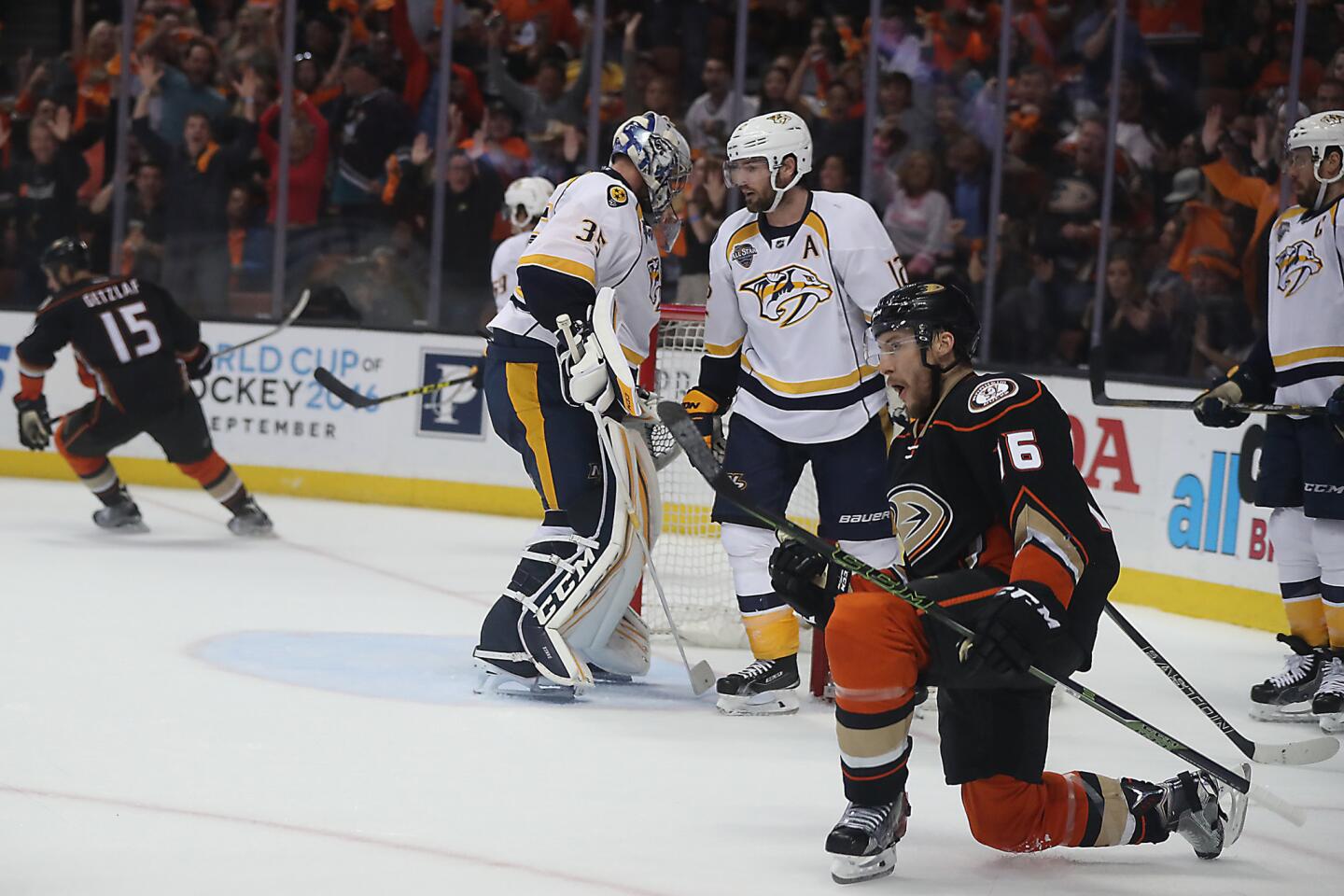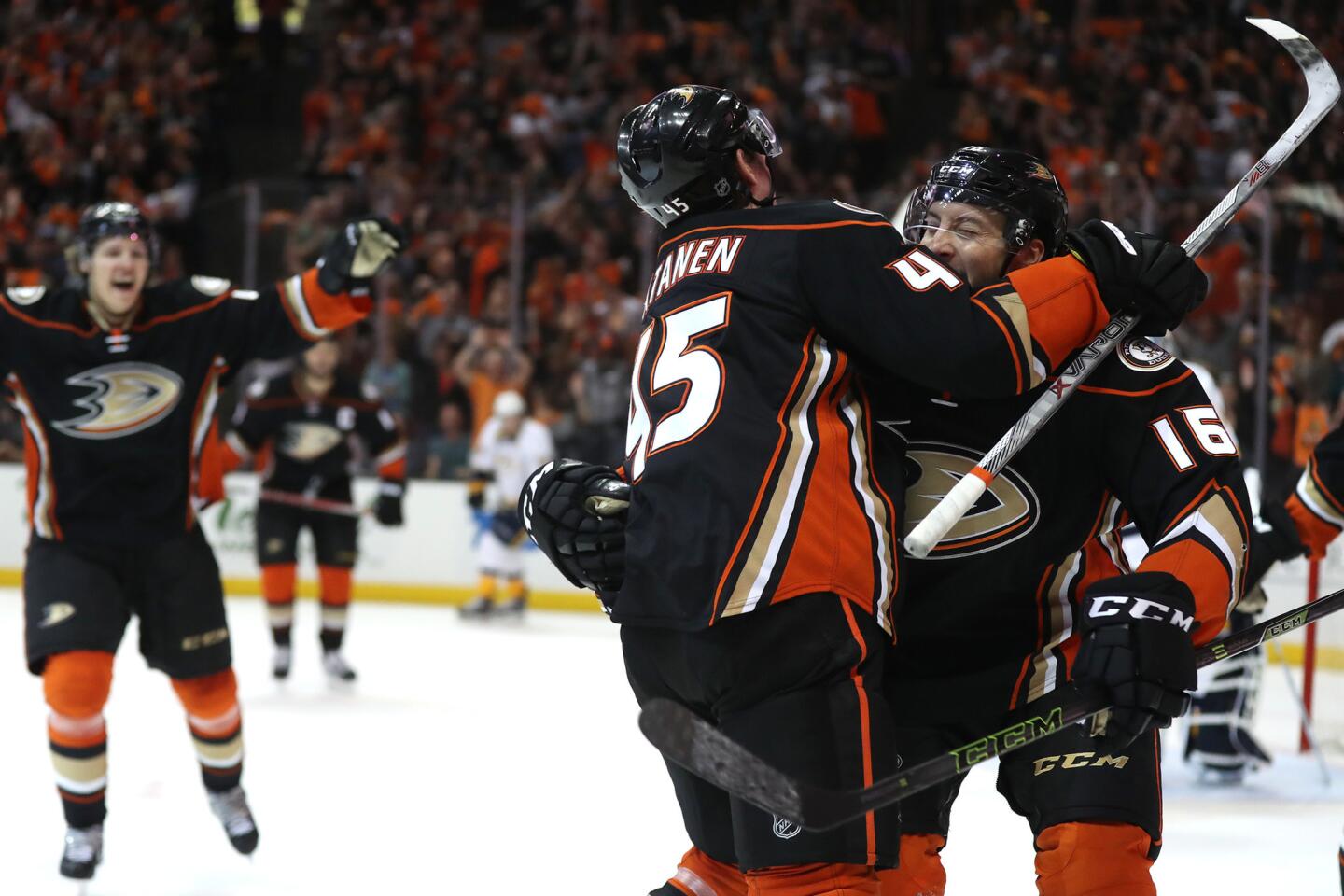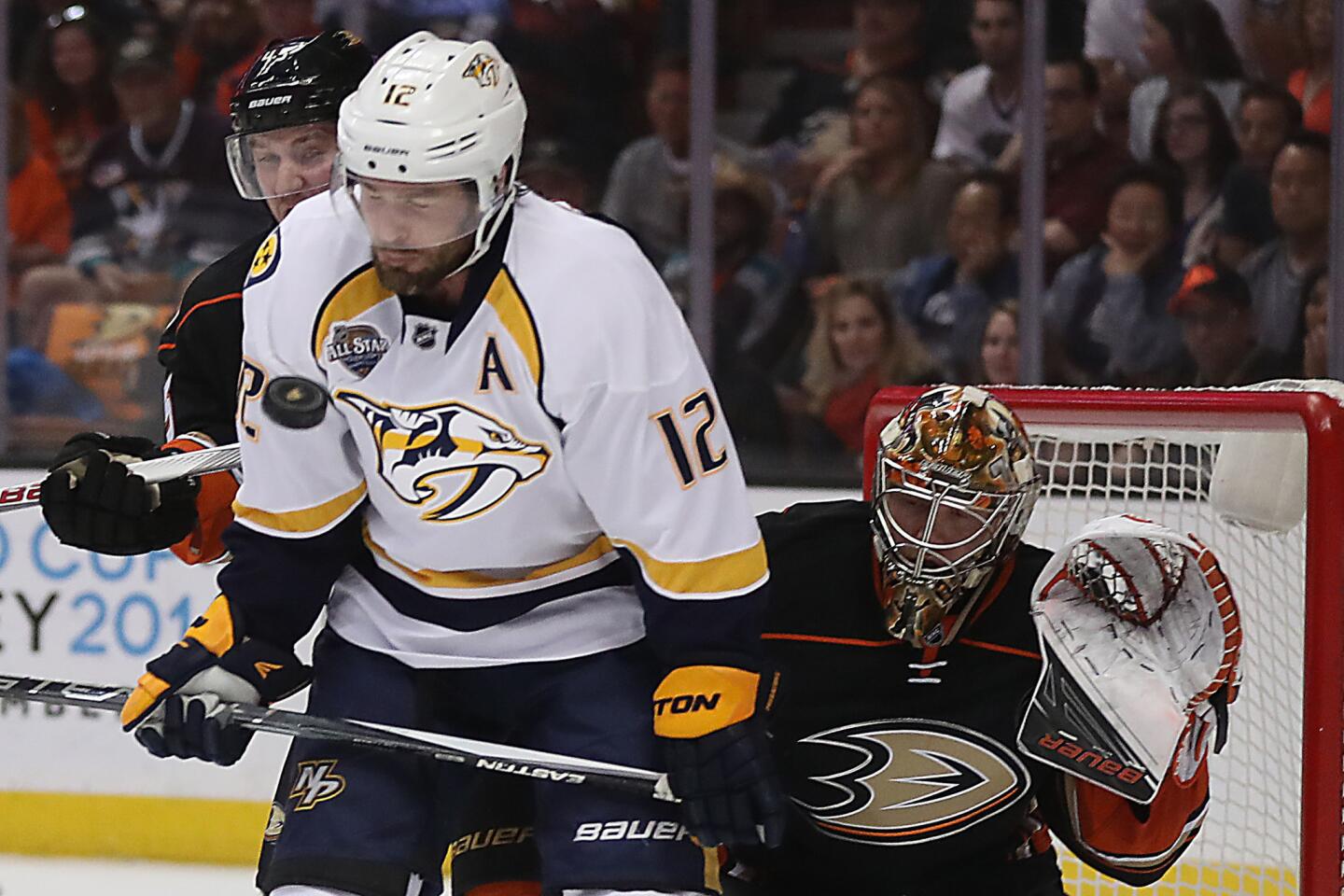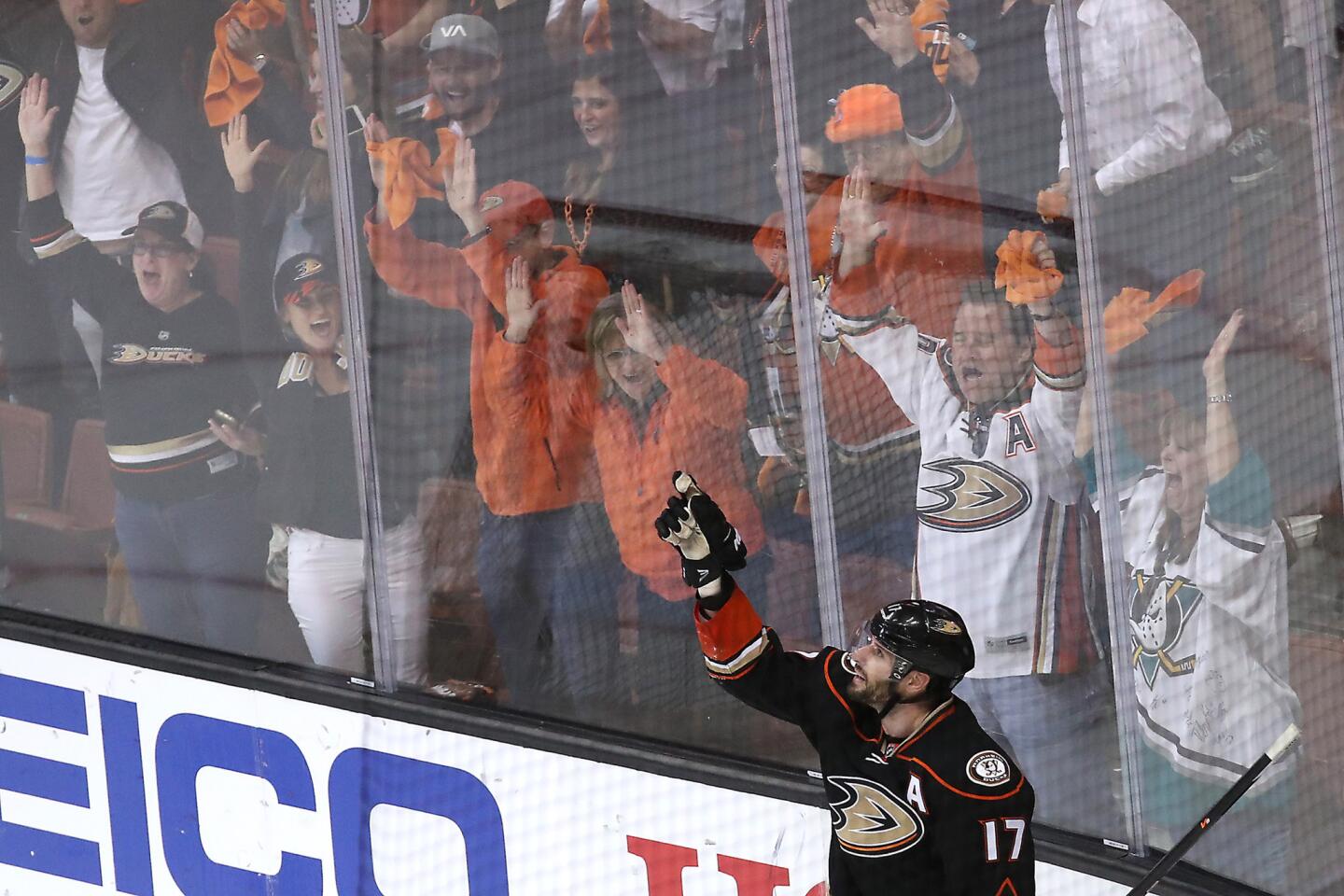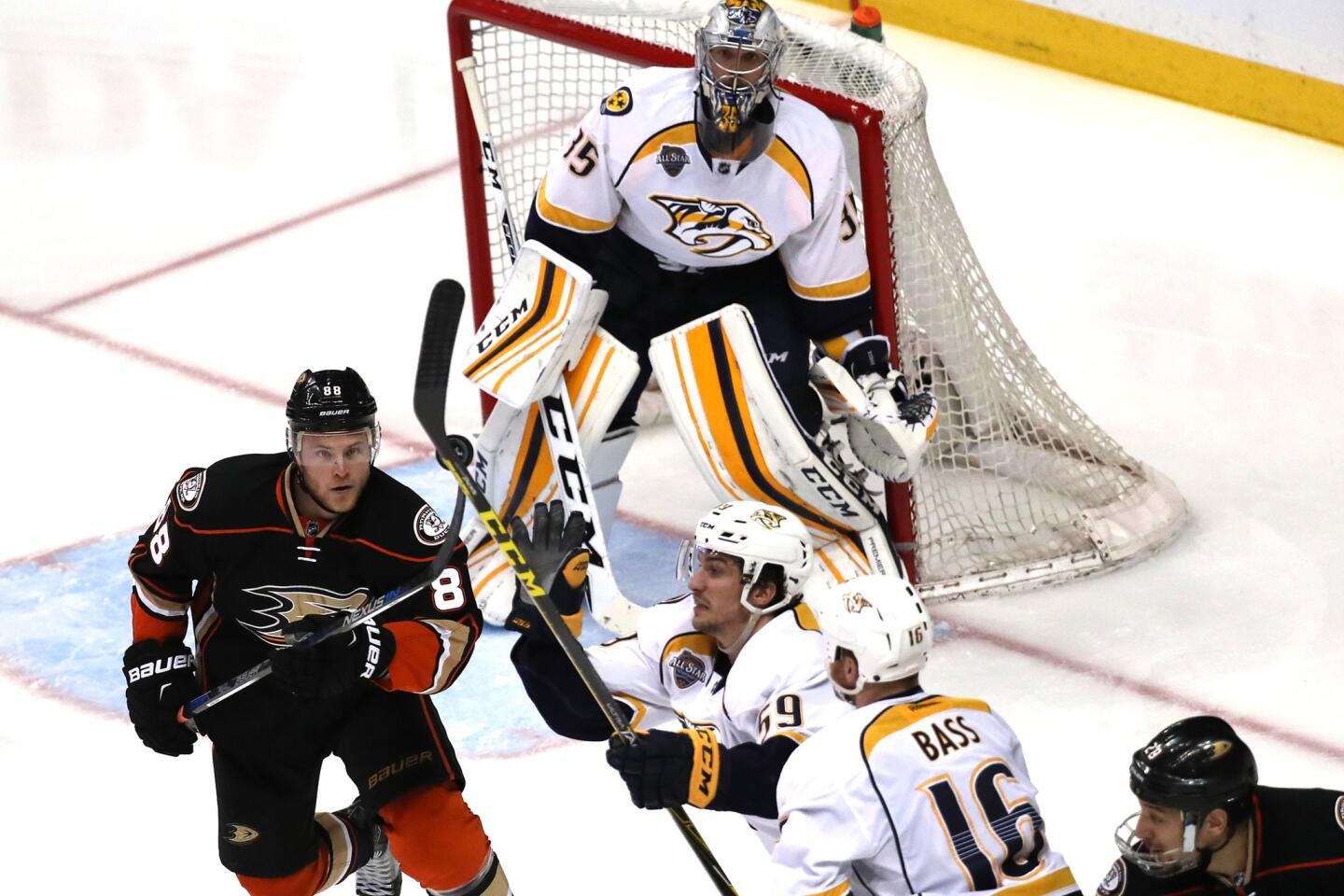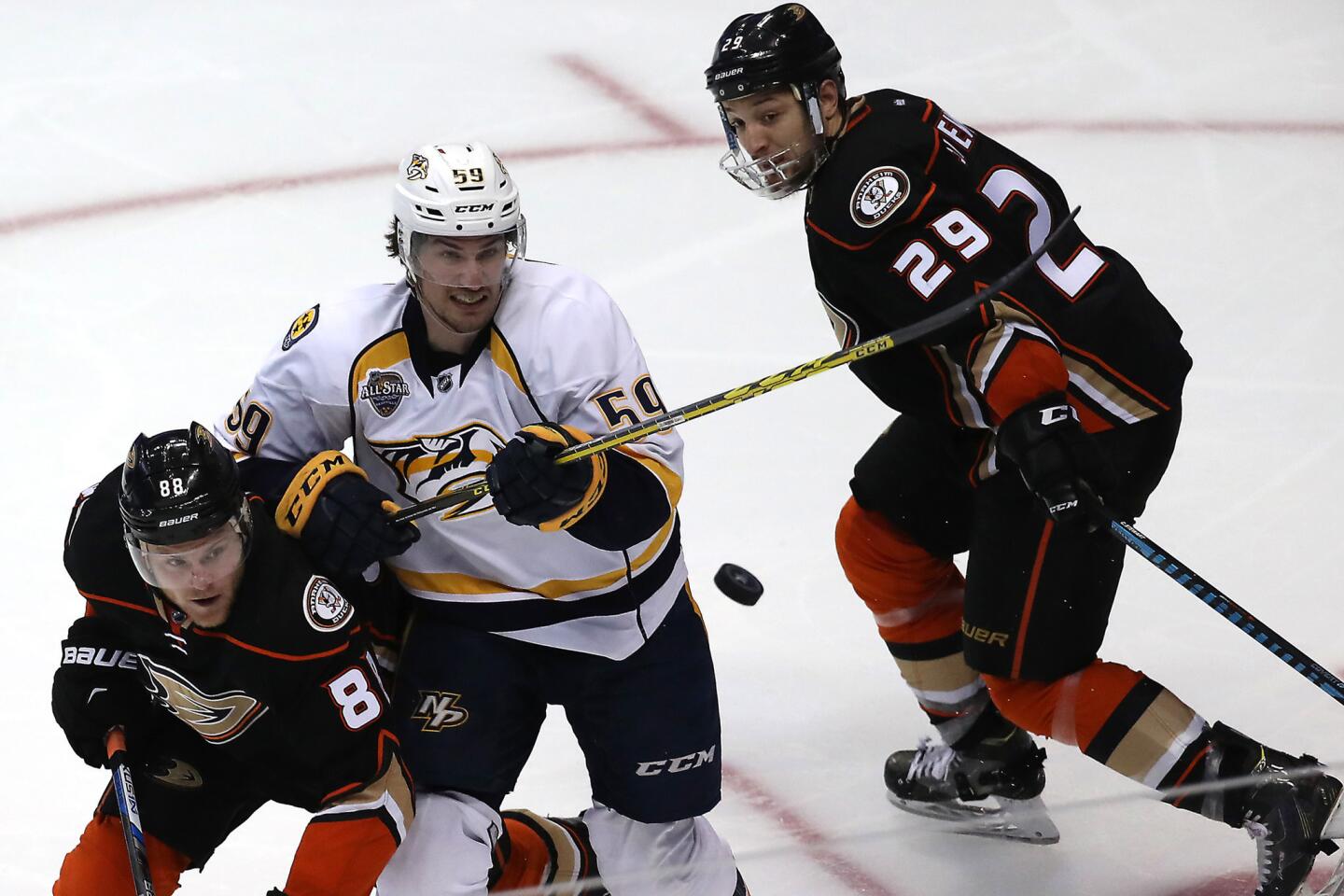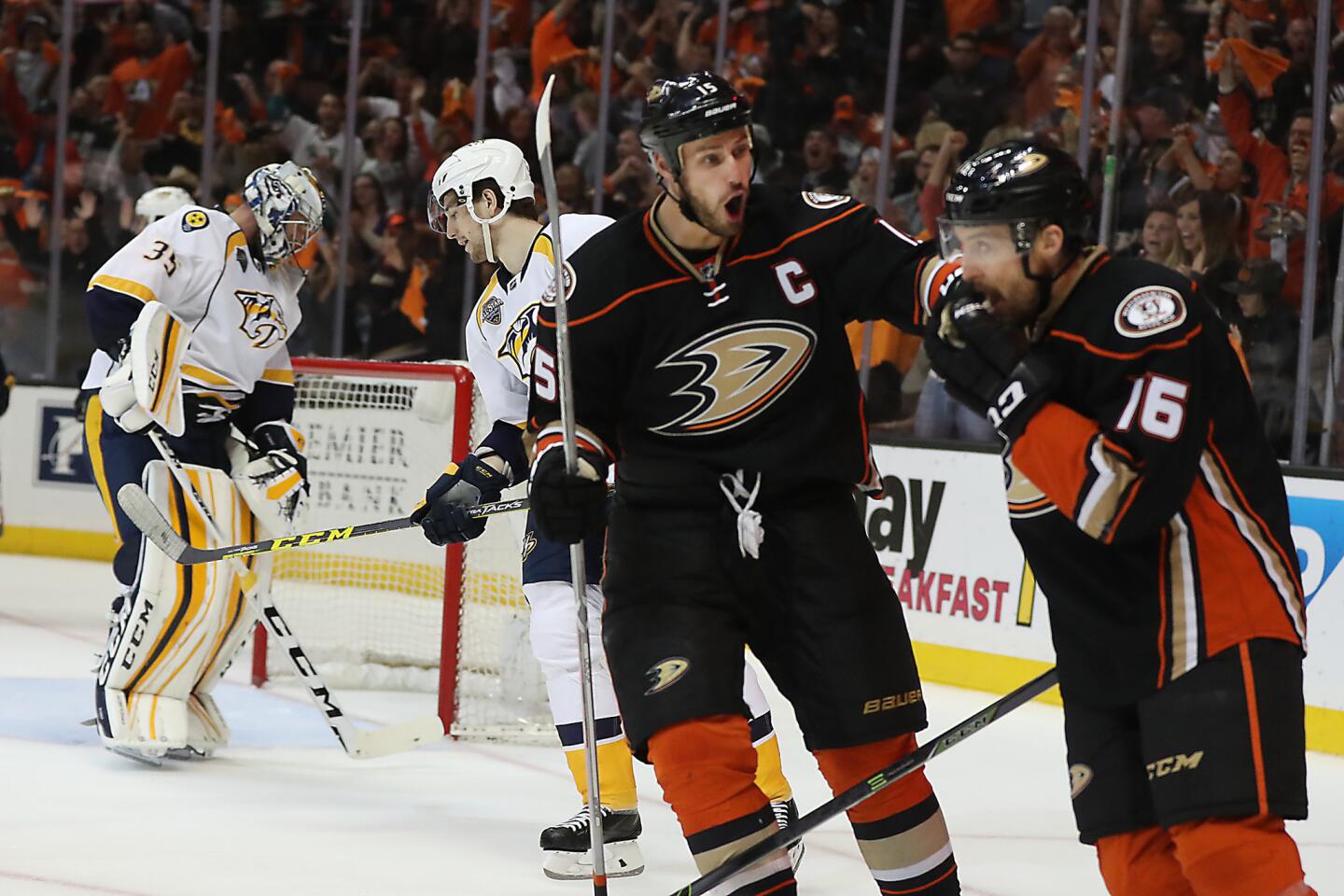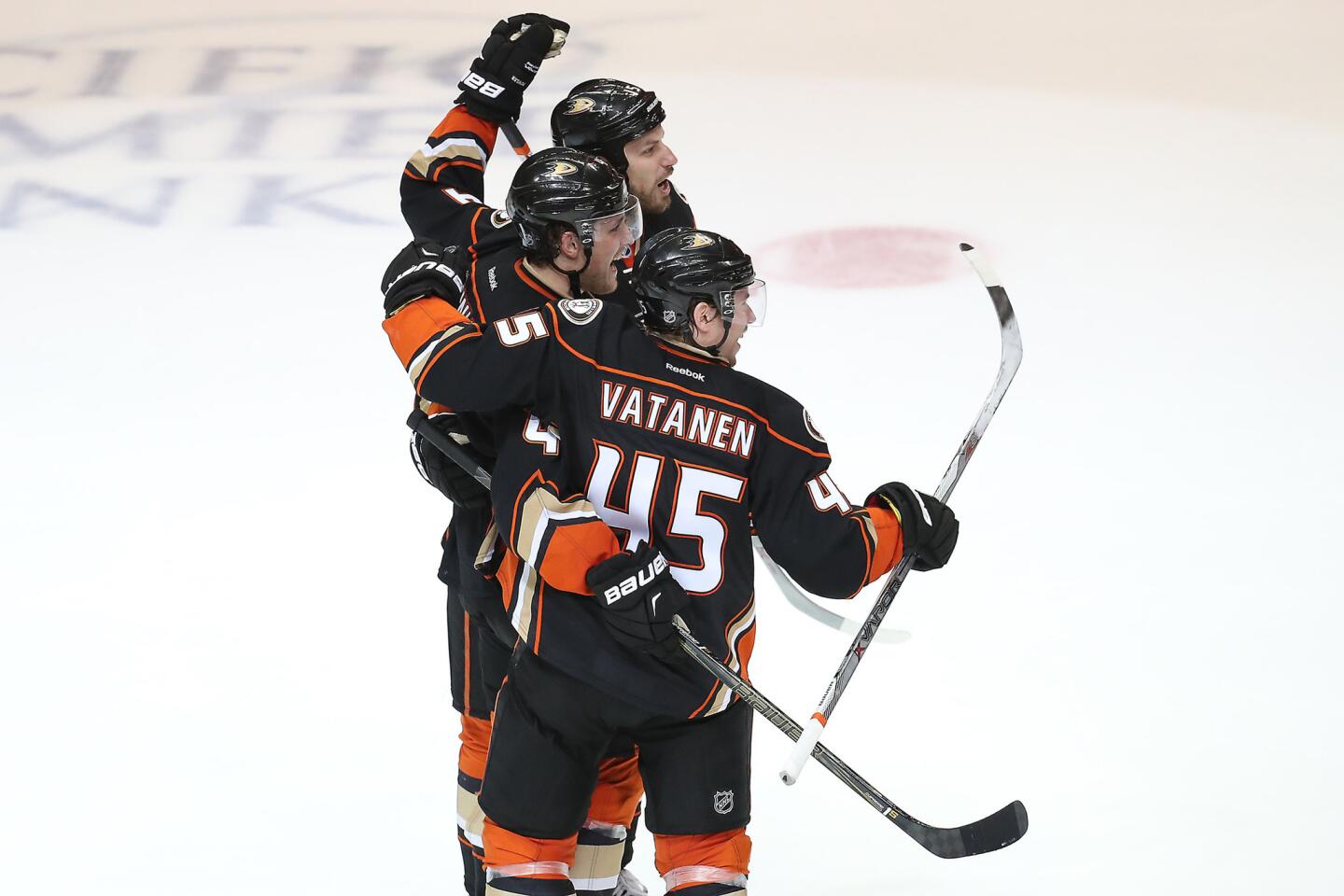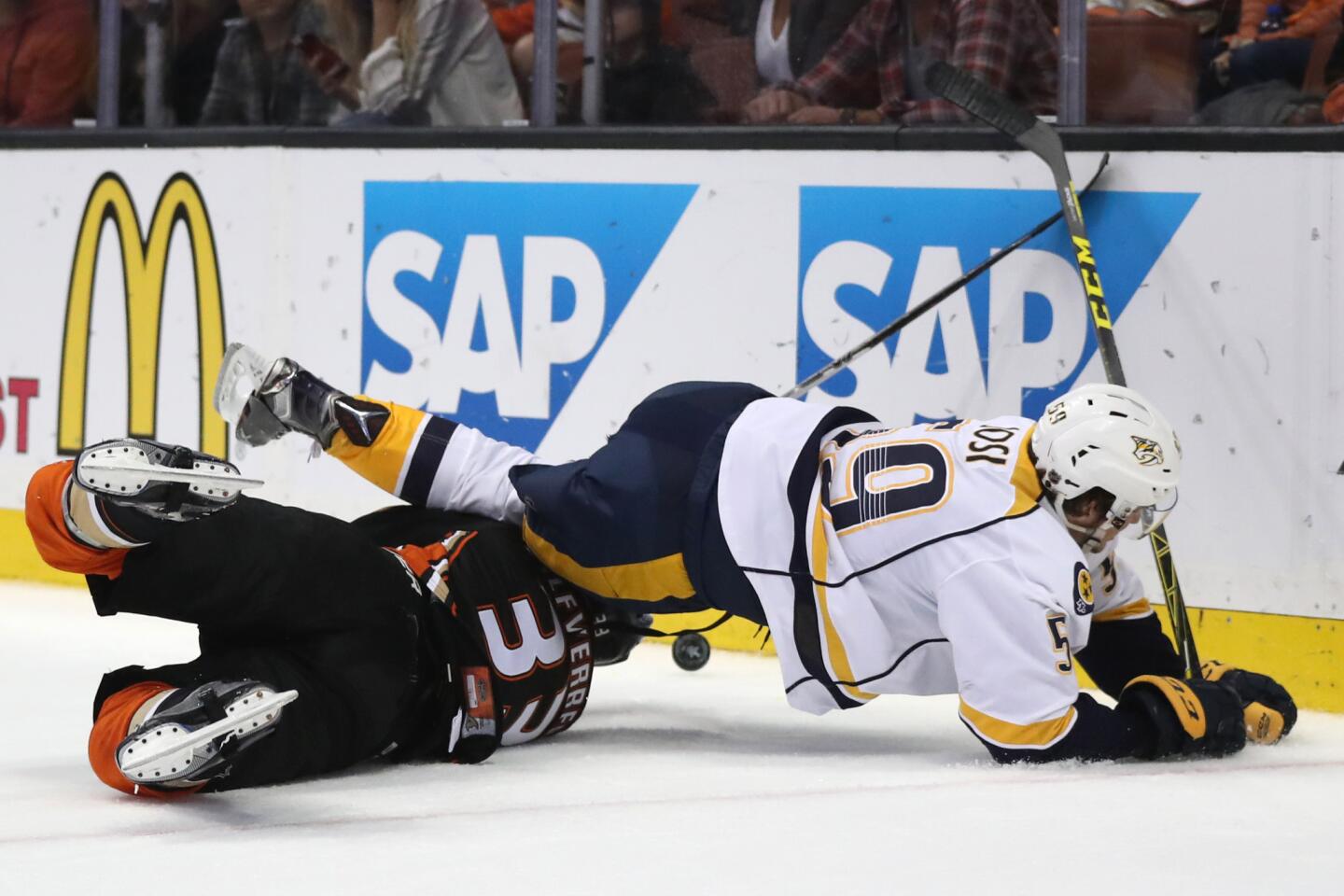Defenseman Kevin Bieksa and Ducks are facing up to their responsibilities in first-round playoff series

Ducks defenseman Kevin Bieska clears the puck from behind the net during the first period of a playoff game against the Predators on April 23.
- Share via
Kevin Bieksa is an educated man. The Ducks defenseman has a degree in finance from Bowling Green, having graduated with a 3.42 grade-point average.
“So you’re saying I should be smarter?” he asked.
Well, yeah.
Bieksa laughed.
“It’s a calculated risk,” he said.
If the stitched-up wound on Bieksa’s chin symbolized a complete disregard for self-preservation, it also represented how the Ducks might be crazy enough to win the Stanley Cup.
“I’ve been doing this for a long time and these are the little things it takes to win, in the playoffs especially,” he said.
In the second period of a 5-2 victory over the Nashville Predators at Honda Center on Saturday, Bieksa hurled his body in front of the near post as Colin Wilson tried to backhand the puck across the goalmouth. A six-ounce disk of vulcanized rubber went into Bieksa’s face.
Soccer players who attempt to block shots do so while covering their private parts and turning their heads. Bieksa leaped in totally exposed, not even wearing a protective visor.
Bieksa was spitting out pieces of teeth as he skated off the ice. Little more than a minute had elapsed on the game clock when he returned for his next shift.
These moments of absolute madness have become increasingly common in recent games for the Ducks, who claimed a 3-2 lead in the best-of-seven first-round playoff series.
“There’s ways to fake it, there’s ways to kind of be in the shooting lanes but kind of not be,” Bieksa said. “When you see our guys, we’re lined up right in the shooting lane, we’re willing to eat it, we have eaten it a lot of times, a lot of guys have blocked shots and got bumps and bruises from it.”
Even two of the team’s stars, Ryan Getzlaf and Ryan Kesler, are throwing their bodies in harm’s way.
“That kind of trickles down the lineup,” defenseman Cam Fowler said. “If you see your best players doing that, there’s no excuse for any other guy not to get in the lane when the opportunity is there.”
In the Ducks’ Game 3 victory, goaltender Frederik Andersen stopped a screaming slapshot from Shea Weber with his facemask.
“Funny thing is, Andersen has a goalie mask on,” Bieksa joked.
Yeah, really, what a wimp.
What the Ducks didn’t do in Game 5 also showed what they were made of, as they resisted the temptation to exact revenge when targeted by late shoves or elbows.
The Ducks committed 16 penalties in their previous three games. They had only three Saturday, including one in the first two periods.
“After the first couple games at home, we felt like we got off our game emotionally and we let some of their guys get under our skin,” Fowler said. “We were taking way too many penalties. They weren’t scoring all the time, but it created momentum for their team. So we wanted to come in tonight with a businesslike attitude. We can turn our head and we can take a punch if it’s going to be a power-play opportunity for us.”
::
The Grand Olympic Auditorium, once a boxing mecca, is now a church. Did the Honda Center undergo a simillar transformation?
It certainly felt like that at times Saturday. Considering the occasion, the fans were oddly tame for most of the day, never really coming to life until the final minutes of the third period.
“Well-behaved,” is how one reporter described them.
Or dispassionate?
The audience was knowledgeable, cheering at the right times, politely applauding each of Andersen’s saves and stirring when the Ducks moved the puck into dangerous areas.
But there were frequent stretches of near silence and the arena’s sound system was consistently louder than voices in the seats, contradicting every cliche you’ve ever heard about what the atmosphere of playoff hockey is supposed to be like.
Little wonder the home team is 1-4 in this series.
::
After dropping the first two games of the series, several of the Ducks turned to Dana Sinclair, the team’s psychologist.
“Sometimes, you feel like you have a good handle on your emotions . . . but it doesn’t hurt to pick her brain a little bit,” Fowler said. “She was able to relax us. I’m not saying she talked to everybody on the team, but the guys who were able to use her as a resource, I think she helped them out tremendously.”
This should have been easy work for Sinclair. As a consultant for the Dodgers for eight-plus years, she has experience dealing with the far worse head cases.
Follow Dylan Hernandez on Twitter @dylanohernandez
More to Read
Go beyond the scoreboard
Get the latest on L.A.'s teams in the daily Sports Report newsletter.
You may occasionally receive promotional content from the Los Angeles Times.

